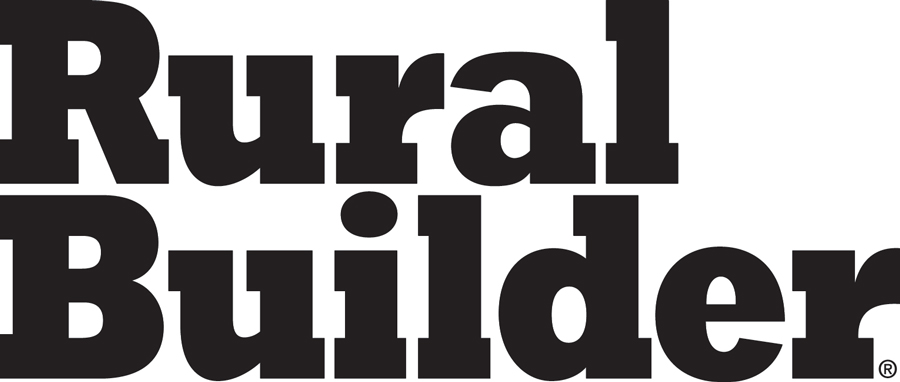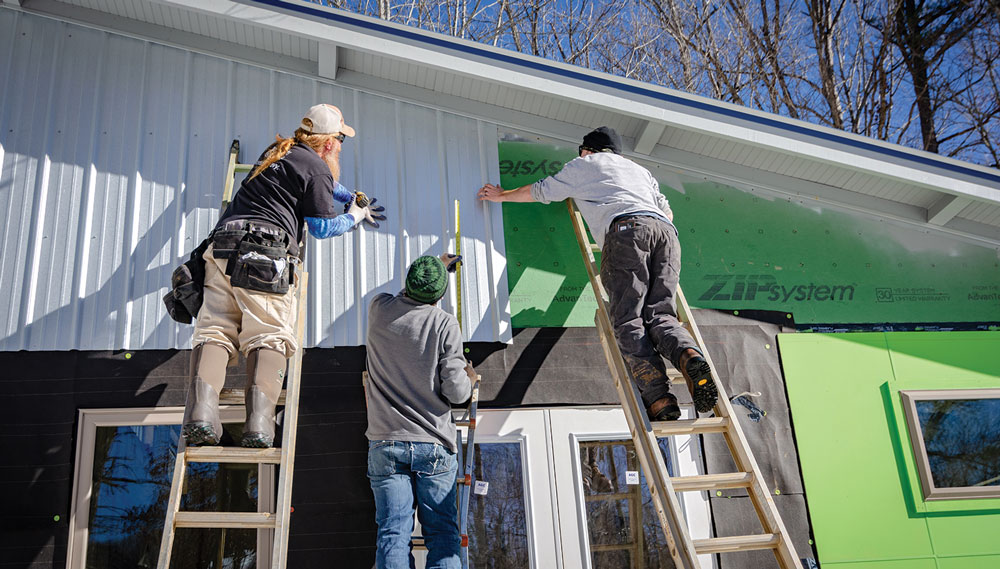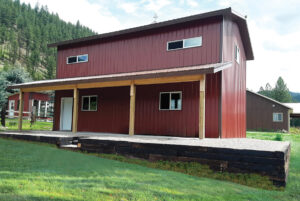By Thelma T. Fair

The farm builder business is more or less a forced association of individuals. Effective cooperation in getting a job done or achieving a specific goal seldom comes automatically. This applies to crew members, salesmen, designers, management associates, and in a firm’s relationship with others in the same industry.
Working with other people takes specific action on your part. It is not a matter of following one simple procedure, but of keeping several considerations in mind.
How do you ask a co-worker to do something? If you exert too much force in a “demand,” resistance will build up in the other person. Requests or suggestions invariably bring better results among co-workers than any “demands,” no matter how carefully they are phrased in pleasant terms.
Make Proposals Clear
Be sure that what you are proposing is clear to the other person. Never taken it for granted that he or she is aware of a detail that you think is elementary. No matter how much background or knowledge the other person may have, it is always difficult for anyone to cooperate with something they don’t understand.
Try to understand the other person’s position on what is to be done. A full grasp of his position will enable you to program what needs to be done most intelligently.
Simplify the proposals when you first talk with the other person. Let the complicated elements follow in a detailed presentation. Don’t give the “whole load of hay” at one time.
Be sure that you’re willing to step back a little to gain everything the other fellow has to offer. This is of major importance when working with our partner, associate, fellow contractor, or a supplier to a current project. Avoid getting yourself in a position of “winning the battle, but losing the war.” The best of everything that is done in business usually results from compromises on many elements.
Know the limitations of each individual with whom you work and accept them not as necessary evils, but simply as elements which must be worked with carefully. Downgrading another because of his limitations sooner or later will get back to him, and any cooperation that you may otherwise have had will disappear.
Share the rewards of an achievement fully with all others who were involved even if only in a small way. Doing so provides incentive towards effective future cooperation.
Insofar as possible, provide the information, data, and equipment the other person will need to effectively cooperate with you. Asking for cooperation if you haven’t supplied these aids can create errors, for the other person might find himself forced to employ makeshift methods.
Use Careful Timing
Be careful picking the time and place to ask for cooperation. Your co-worker might have a busy workload of his own and be unable to give you his full attention immediately. Remember, his current task may have first priority.
When you have the attention of your co-worker, give him the entire outline of your proposal. If you supply only a small part, you may think you are protecting your own interests. However, you will get better results if the individual knows the complete picture. Too often what you withhold might be just what he needs to accomplish his part of the program.
Know Limitations
Always be ready to give your own full cooperation when others bring problems to you for your help. Working effectively with others inside or outside of your business is definitely a two-way procedure.
Take your full share of the difficult parts of a project. Don’t try to put them off on other people. Anyone will recognize if you try that, and cooperation will lessen as the other person thinks about the extra burden.
Ask for the other person’s ideas instead of insisting on your own. Some of his ideas may be good ones and contribute to your program.
If you are working with a new procedure, set up ground rules for yourself and other people involved to avoid misunderstandings. And, save that “rush and hurry” approach only for times when it is actually needed. Otherwise, it will be easy to antagonize another person if you insist on pressuring him with a need for unnecessary haste.
Lastly, be accessible while your project is underway. Your own availability and cooperation will help speed up your project. RB



















